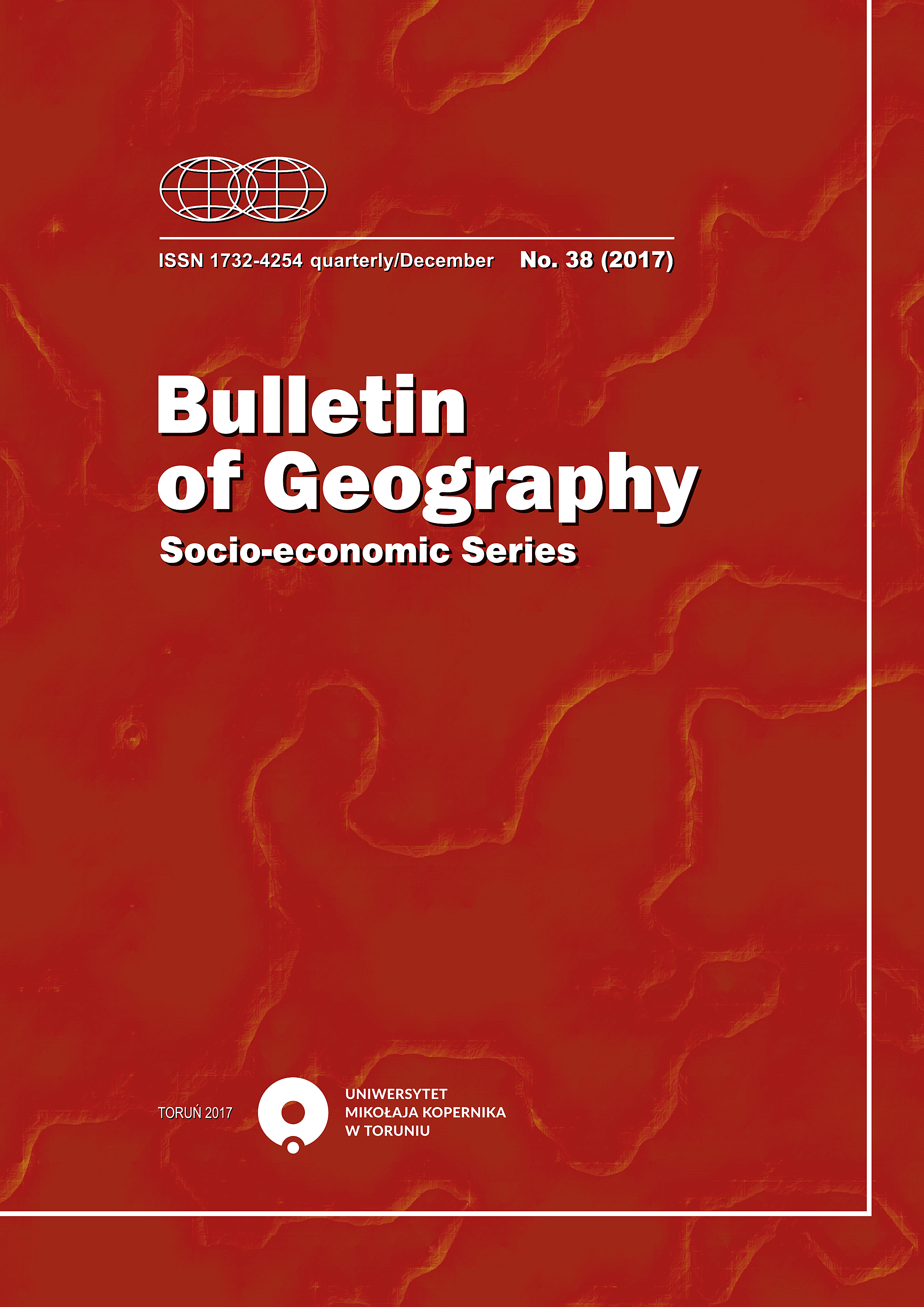Specific Kaliningrad character of the Russian identity
DOI:
https://doi.org/10.1515/bog-2017-0033Abstract
There are different levels of territorial identity perceived as a sense of belonging to a particular social and territorial community. People residing in any region identify themselves with these levels to a different degree. Since 2001, the authors have been doing sociological research into the territorial identity of the population of the Kaliningrad region, which became a Russia's exclave after the demise the USSR. The research shows that residents of the Kaliningrad region associate themselves with different territorial communities to a varying degree starting with an ever strengthening sense of national identity, followed by the regional and local identity. The sense of macro-regional (European) and global identity is significantly lower.References
Alimpieva, A.V., 2009: Sotsial’naya identichnost’ kaliningradtsev v sotsial’nom I geopoliticheskom kontekste (Social identity of Kaliningradians in the social and geopolitical context - in Russian). In: Pskov journal of regional studies, No. 7, pp. 36-40.
Berendeev, M.V., 2007: Vliyanie ekonomicheskih faktorov na formirovanie samoidentifikatsii zhitelei regiona (The impact of economic factors on the self-identification of people in the region - in Russian). In: Bulletin of the I. Kant Russian State University, No. 8, pp. 73-80.
Diener, A. and Hagen J., 2011: Geopolitics of the Kaliningrad Exclave and Enclave: Russian and EU Perspectives. In: Eurasian Geography and Economics, Vol. 52, No. 4, pp. 567–592. DOI: 10.2747/1539-7216.52.4.567
Fedorov, G.M. and Zverev, Y.M., 1995: Kaliningradskiye al’ternativy (Kaliningrad alternatives - in Russian), Kaliningrad: Kaliningrad State University Press.
Kazharski, A., 2015: Russia's Kaliningrad Phenomenon: A case for a Europeanised identity? In: New Eastern Europe, Published on Friday, 10 April 2015 14:13.
Klemeshev, A.P., 2005: Transformatsiya eksklavnosti v usloviyah politicheskoi globalizatsii (Transformation of exclave in the conditions of political globalization - in Russian). In: Polis, No. 4, pp. 143-157.
Klemeshev, A.P. and Fedorov, G.M., 2001: Kaliningradskiy sotsium (Kaliningrad society). In: Region sotrudnichestva (Region for Cooperation - in Russian), No. 15, Kaliningrad: Kaliningrad State University Press, pp. 4-41.
Klemeshev, A.P. and Fedorov, G.M., 2004: Kaliningradskiy sotsium (Kaliningrad society). In: Region sotrudnichestva (Region for Cooperation - in Russian), No. 6(31), Kaliningrad: Kaliningrad State University Press, pp. 4-43.
Klemeshev, A.P., Fedorov, G.M., Abramov, V.N., Alimpieva, A.V., Andrejchuk, N.V., Gavrilina, L.M. and Zverev Y.M., 2005: Problemy separatizma v usloviyah eksklavnyh territoriy (Separatism issues in enclave territories - in Russian). In: Region sotrudnichestva (Region for Cooperation), No. 3(46), Kaliningrad: Kaliningrad State University Press.
Klemeshev, A. and Mau, V., editors, 2007: Strategii razvitiya Kaliningradskoy oblasti (Strategies for the Development of the Kaliningrad Region - in Russian), Kaliningrad: Russian State University Press.
Misiunas, R., 2004: Rootless Russia: Kaliningrad—Status and Identity. In: Diplomacy and Statecraft. Vol. 15, No. 2, pp. 385–411. DOI: 10.1080/09592290490448906
Oldberg, I., 2000: The Emergence of a Regional Identity in the Kaliningrad Oblast. In: Cooperation and Conflict, Vol. 35, No. 3, pp. 269–288. DOI: 10.1177/00108360021962101
Richard Y., Sebentsov, A. and Zotova M., 2015: The Russian exclave of Kaliningrad. Challenges and limits of its integration in the Baltic region. In: Cybergeo, available at: https://cybergeo.revues.org/26945#ftn24, DoA : 27 September 2016.
Downloads
Published
How to Cite
Issue
Section
License
Title, logo and layout of journal Bulletin of Geography. Socio-economic Series are reserved trademarks of Bulletin of Geography. Socio-economic Series.Stats
Number of views and downloads: 1111
Number of citations: 5



